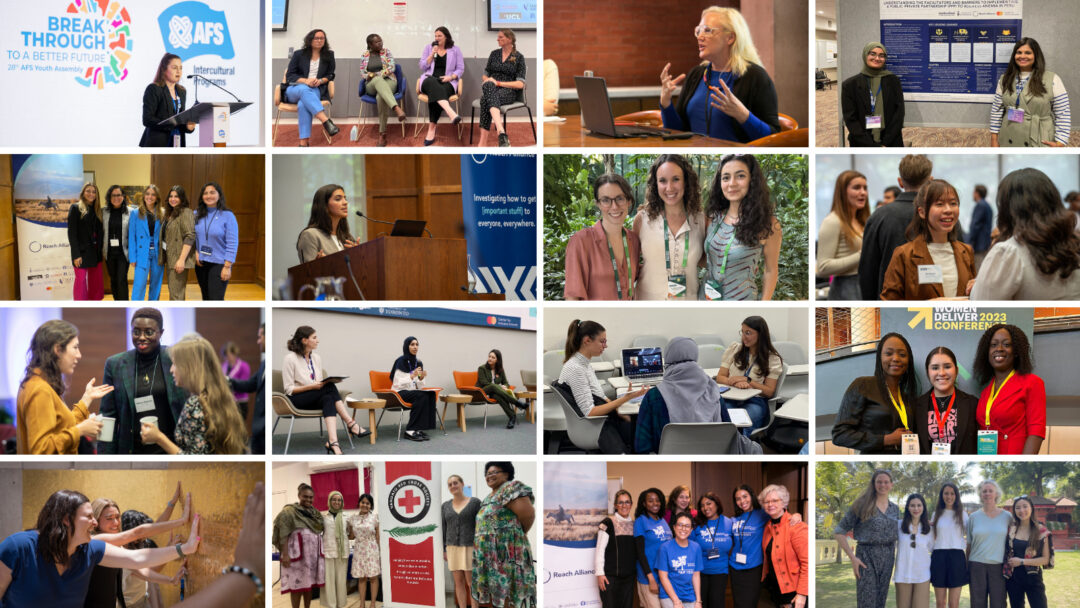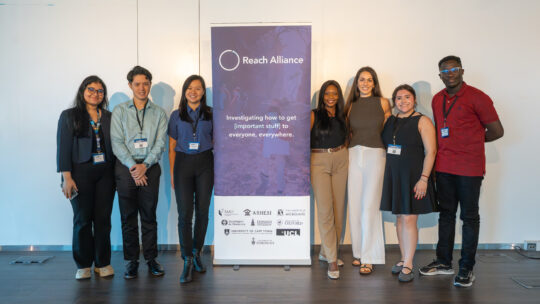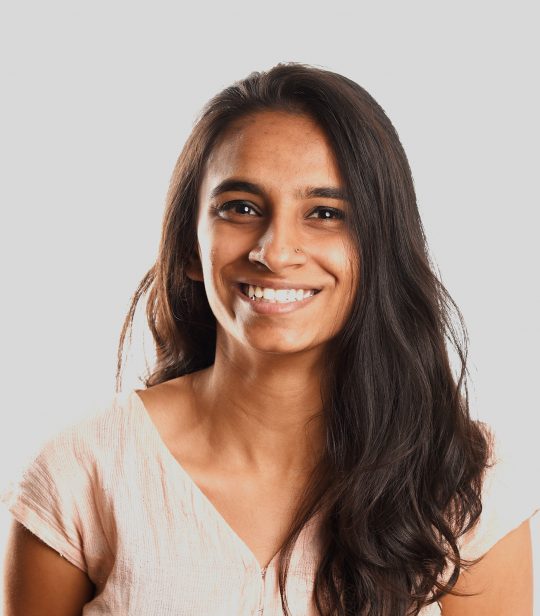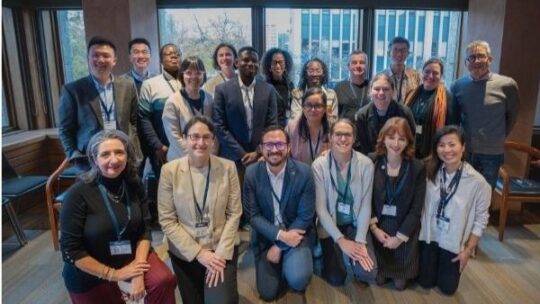Blogs: Latest Blogs, Podcast
Empowering Voices, Inspiring Change: Celebrating International Women’s Month

Observed annually on 8 March, International Women’s Day (IWD) represents a global movement to amplify women’s voices and recognize their significant contributions to society, politics, economics, and culture. It’s a time to reflect on the progress that’s been made and the work still to do. As the UN’s Sustainable Development Goal 5 on gender equality puts it, “International commitments to advance gender equality have brought about improvements in some areas: child marriage and female genital mutilation (FGM) have declined in recent years, and women’s representation in the political arena is higher than ever before. But the promise of a world in which every woman and girl enjoys full gender equality, and where all legal, social and economic barriers to their empowerment have been removed, remains unfulfilled.”
The year’s IWD theme focuses on inspiring inclusion to forge a better world where all women experience a sense of belonging, relevance, and empowerment. Moni Kim, Reach Alliance’s senior research program and engagement officer, reflected on this theme: “International Women’s Day serves as a poignant reminder that achieving meaningful progress toward the Sustainable Development Goals (SDGs) requires recognizing and celebrating women’s voices, contribution, and leadership across all systems of power.”
Over the last seven years, Reach has celebrated the achievements and progress that women have made worldwide. This month, and every month, we continue to highlight the ongoing struggles for equality and amplify the need for continued advocacy and action worldwide. In higher education, women continue to make significant strides, breaking barriers, and reshaping the landscape of knowledge creation and dissemination. From ground-breaking research to mentoring the next generation of scholars, their contributions are indispensable to the advancement of society as a whole. We are grateful for the stellar contributions of our amazing global networking, including Reach’s leadership team, advisory council, performance coaches, mentors, and researchers.
“At Reach, the raising of women’s voices is apparent in the staff, students, faculty, projects, global partners, and the communities they represent. Women’s excellence can be seen in all aspects of the Reach Alliance, and contributes to the rich tapestry of diversity that is celebrated and elevated,” says Leanne De Souza-Kenney, Reach mentor and assistant professor in the Human Biology Program and Health Studies Program, University College, University of Toronto.
Research, diversity, and inclusion are paramount to fostering innovation and impact. With over 10 international reports directly related to SDG 5: Gender Equality and many more with cross-cutting insights, Reach research represents a hub of inclusive knowledge and knowers who have been traditionally disengaged and marginalized from traditional academia. Carolina Bermudez, program manager at Kindred, emphasizes how important it is to include diverse women’s point of view in any research: “As a woman (and human) I am convinced that every community should be telling its own story. I have found in Reach an opportunity for some of these stories to be shared, fostering connections between women from different countries and cultural contexts.”
Reach is dedicated to amplifying the voices and actionable research insights of our researchers and alumni. Through these efforts, we hope to showcase the transformative potential of inclusive research and advocate for meaningful change on a global scale. This month, we debuted the first “Insights to Impact” podcast episode featuring Reach researchers Laila Al Nagar and Margaux Roncière discussing their recently published Reach reports and reflections on how eco-feminist initiatives in Nepal and Mexico are not only empowering women but creating more sustainable communities.
This month Reach alumni and Advisory Council member Syndey Piggott joined the Commission on the Status of Women (CSW) and YWCA Canada for a conversation about financial inclusion and gender-based violence. Here is what she shared about the experience:
Drawing on insights from the Reach chapter in Cash Transfers for Inclusive Societies, I used examples from five case studies to show how cash-transfer programs can be designed to support women and gender-diverse people experiencing violence using a community-centred, intersectional approach. It was a packed session with attendees from around the world—including civil society leaders, politicians, and academics—who were excited to take learnings back to their own communities.
The 2022 Equal Measures SDG Gender Index shows that progress on gender equality has been alarmingly slow with less than a quarter of countries making fast progress and a third of countries making no progress or moving in the wrong direction. It reports if all countries moved as quickly as the 15 fastest-progressing countries, we could achieve global gender equality by 2049. Therefore, increased and improved investment in feminist organizations and movements is crucial to accelerate our progress toward a gender-equal future.
Let us continue to empower diverse voices and drive meaningful change by combating biases, championing inclusivity, and generating actionable research insights that help to address the gender data gap.



